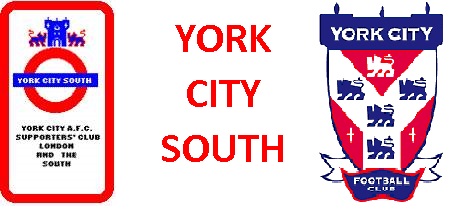

John Ward
York City
It was "John Who?" on arrival in November 1991 and "John Why?" in March 1993 as John Ward left City for struggling Bristol Rovers.
Taking over in November 1991, his appointment was something of a surprise, but he quickly instilled something into the team. He transformed them from a bunch of talented but inconsistent players into a winning team. He revolutionised City's training and introduced a dietician to the club.
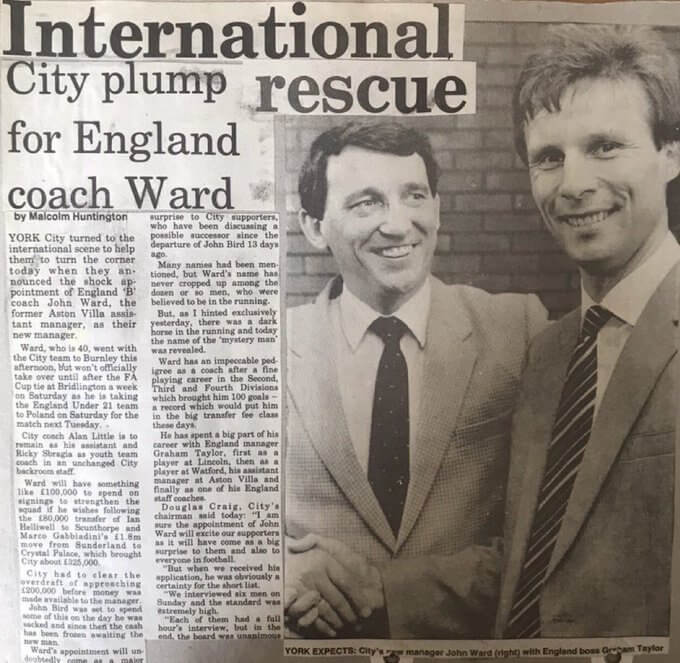
Arriving for his interview he was greeted by Barry Swallow, an old playing adversary. He understood the new manager would have to work with the current staff, Alan Little and physio Jeff Miller. Within 2 hours of the interview, he received the offer from Craig. He formed an inclusive management team with Little and Miller.
Speaking on York Hospital Ball, he described how in summer 1992, he signed Paul Barnes, a prolific reserve team striker from Stoke, who he knew would score goals and John Borthwick, a forward who knew how to lead the line. Together with Ian Blackstone, often deployed as a sub, who would run and run and push team forward late on, he had a strike force to take full advantage of Tony Canham and Jon McCarthy’s wing play. Behind them, his other "big" signing, local boy, Gary Swann signed on a free after a long career at a higher level complemented Nigel Pepper in midfield.
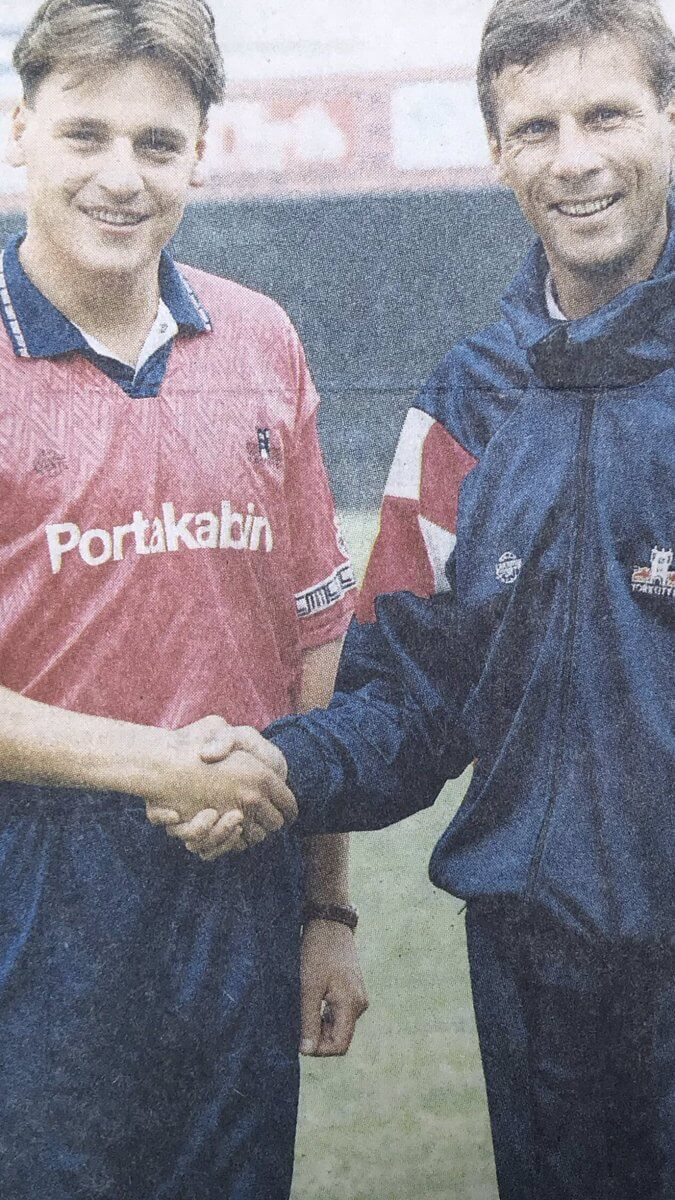
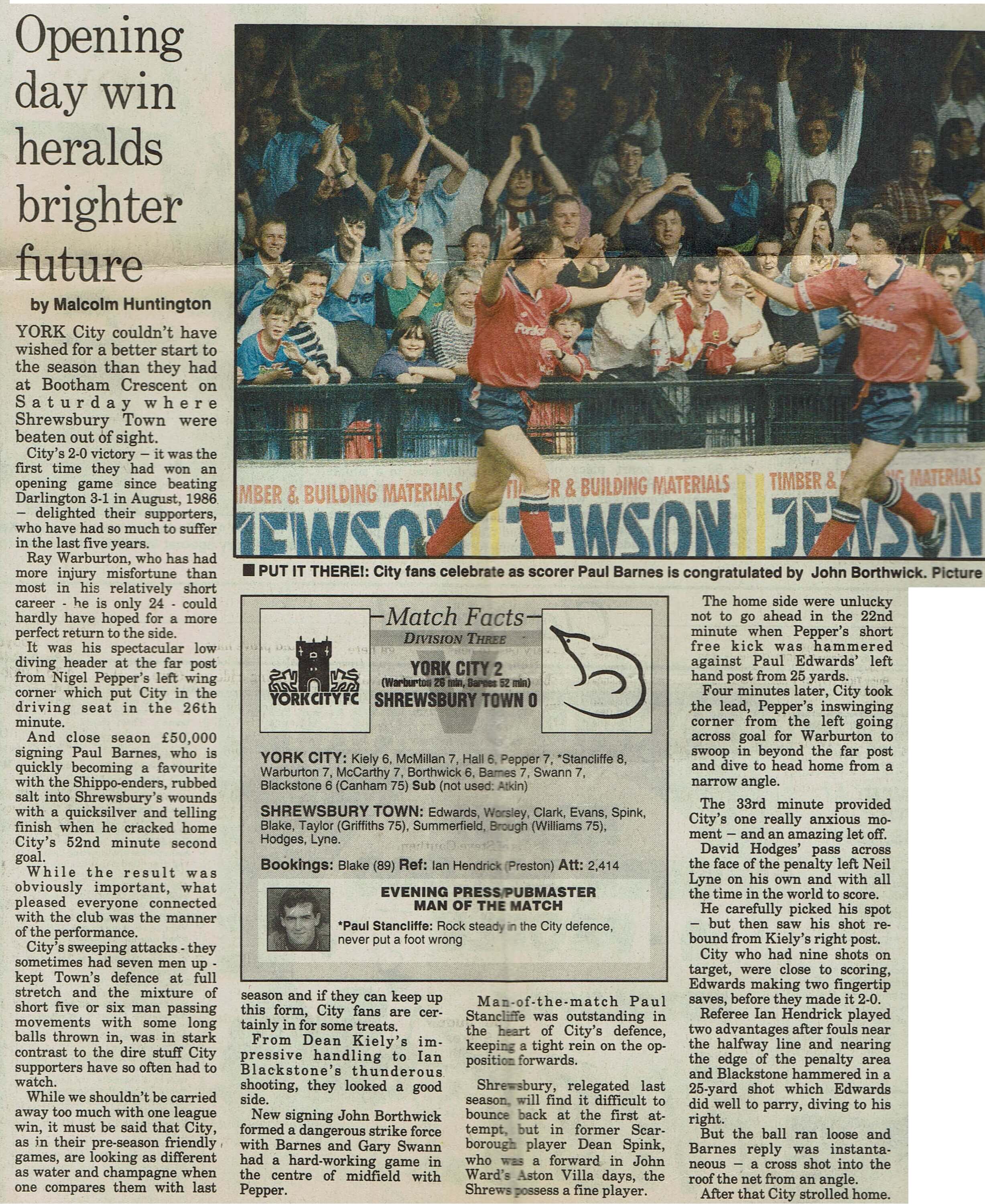
However it was noticeable how the team that he took 7 points clear at the top of the basement division in November 1992 was built around those players he had inherited from John Bird.
City were rocked in March 1993 when Bristol Rovers, struggling 2 divisions above City, came calling. Ward was swiftly installed as their new manager on March 12. Almost immediately, Douglas Craig slapped a High Court injunction on Ward, initially thought to be for £50,000. By March 16, compensation of £10,000 was agreed (some press reports state £8,000). The amount believed to be 3 months of Ward's wages, in lieu of his 3 months’ notice. It is also believed that Ward's contract at Bristol Rovers was worth £250,000 over 3 years, more than a three fold increase on his City wage.
Speaking onYork Hospital Ball, Ward described how after Rovers’ first offer had been turned down, Douglas Craig gave him a wage increase, but still no contract, and a little later, when Rovers come back, Craig offered another increase but still no contract. The lure of a 3 year contract proved too much although Ward soon had some misgivings as he was managing a club with no stadium, no training facilities and no offices, strapped for cash they were ground sharing with Bath City.
A mid season slump saw City miss out on automatic promotion on the final day in 1993, but Alan Little, promoted to manager after serving as coach under both Ward and Bird, was to lead us to promotion via a play off win over Crewe at Wembley. Ward and his wife attended the Wembley final as Craig's guests.
At Bristol Rovers, on reputedly twice the salary he enjoyed ay York, John Ward was unable to save them from immediate relegation. They joined City in the third flight but soon plummeted back into the basement division. However, his reputation remained strong.
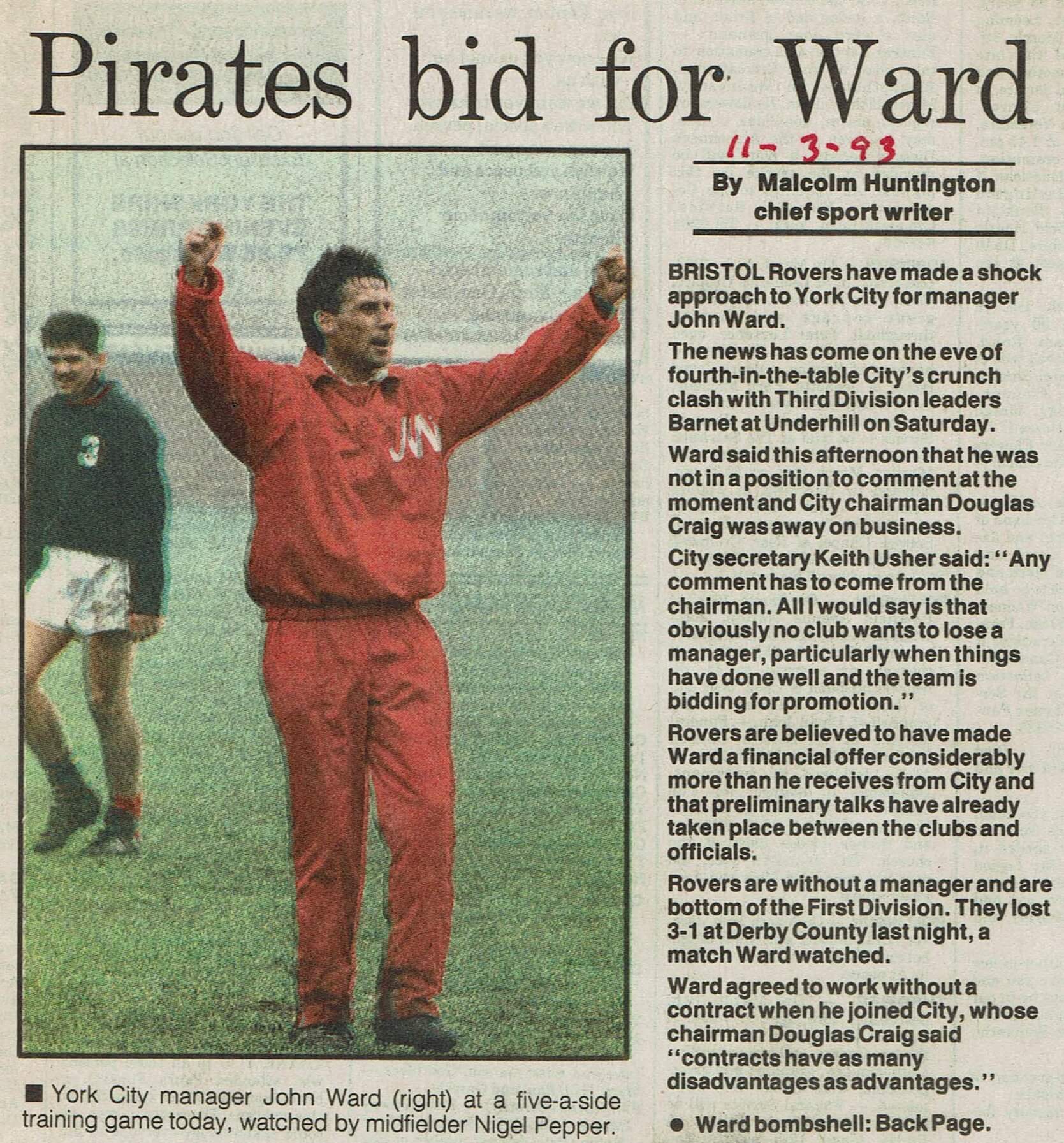
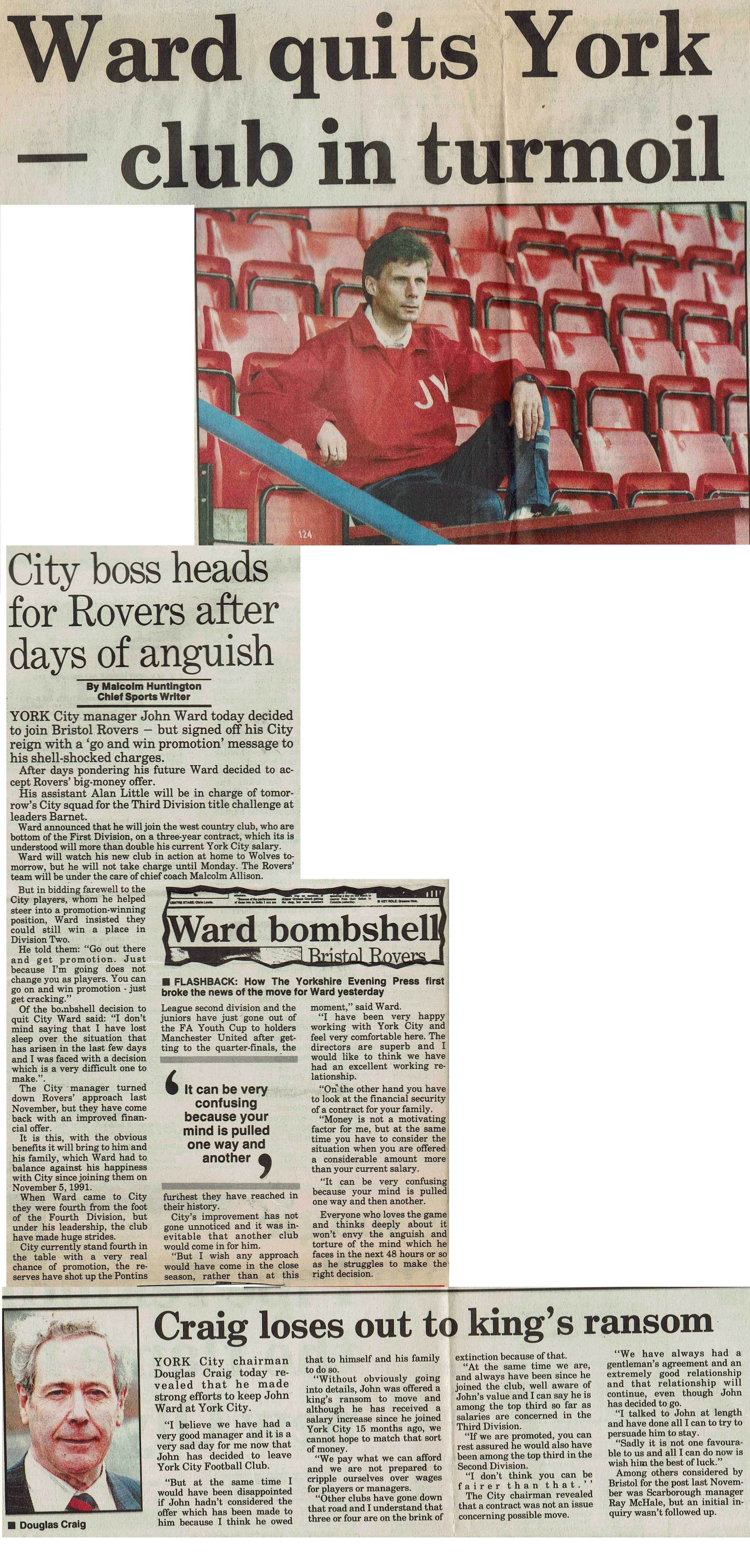
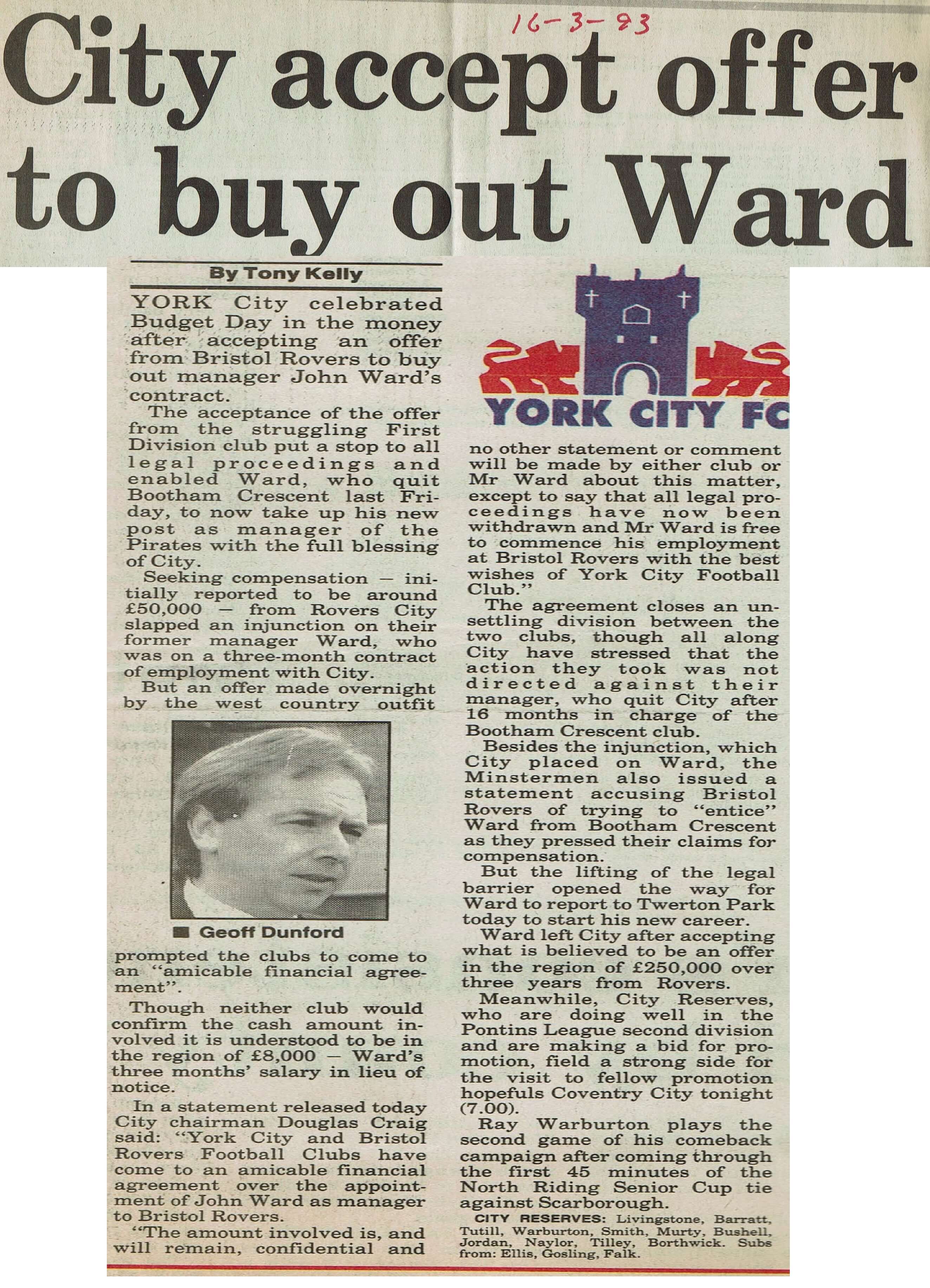
After Bristol Rovers, he managed Bristol City, Burnley (where he was re-united with Paul Barnes), Cheltenham who he left in Septemebr 2007 to become the manager of Carlisle. Between managerial appointments, he was much in demand as a coach.
A former lower league striker, he had played with Graham Taylor and made his name as a coach at Watford, and, later, Villa under Taylor.
His Watford experiences meant that whilst with City, he lead several initiatives to encourage wider community and junior involvement at Bootham Crescent. It was in the era of record Junior Reds membership and also saw the opening of The Family Stand and Family Room.
A common feature of all the teams that he has managed is their belief in playing a passing style of football that is pleasing on the eye.
Footnote: Always innovative,he was probably the first City manager to make City players aware of the values of a healthy diet and proper nutrition as well as having a sports pychologist visit the players. Jon McCarthy, for one, noted how Ward introduced an upturn in coaching and preparation from what he'd been used to and felt that Ward could read a game well and was quick to make tactical changes when necessary, they often changed the course of the game in City's favour. Teammate Tony Canham noted "you could tell he'd coached at a higher level, meticulous and superb tactically". On YHB, Ian Blackstone was another who noted Ward as being ahead of his time, introducing sports pychologists and nutritionists to City, eagle eyed supporters might have noted the pychologist often speaking to Jon McCarthy on the pitch prior to kick off.
The Player
‘Wardy’ the pro, an Imp born and bred, was an archetypal modern Lincolnshire poacher and predator, pouncing from all over the park. In the six-yard box he was deadly, every inch a goal machine from head to toe. John, found the space, he had pace and grace, but in the penalty box, where time and desperate last ditch defence favours the enemy he could compete and defeat. The goal machine has the presence, when and where it matters and, Wardy certainly had that instinct. With goals the lifeblood of the people’s game, his deadly first touch and devastating awareness and flawless finish, wooed the Railway end and kick-started many a Clanford roar.

John Ward, could not get enough of the game, like most centre-forwards, love is the drug, the buzz of banging them in, putting the predator almost into hybernation the wrong side of the match whistle. Incredibly he combined playing for the Imps reserve and ‘A’ sides with appearance for top Lincoln Sunday side Adelaide Park. The insurance boys would have none of that when he signed professionally in March 1971 and he drifted, missing the 100 plus hauls he had enjoyed since he had first donned a pair of boots.
He made his Lincoln debut in 1971 and scored his first goal in his next appearance, April 3rd 1971 as Lincoln went down 4-5 at home to City.
He was almost lost to Lincoln City when manager Herd loaned him to Workington in 1972. Struggling, he started to click, notching 3 goals in 11 appearances. Workington saw something in the 20-year-old, not seen as tough enough by Herd, and made a bid. Before any deal was struck, David Herd got the boot and enter Graham Taylor, recognizing the lad's talent, knocked the bid back and positively charmed him back into the Imp fold. John would reward the faith with his first hat trick for the club in the spring against Stockport.
John then never looked back. Wardy ‘walloped, caressed and proved he was blessed with 17 goals in 73/74 and 13 in 74/75, reserving his career best for our record breaking 1975/76 Division 4 Championship season. John Ward scored 29 League and Cup goals including 4 against Chesterfield. At the double the bagged 5 braces against Exeter, Swansea, Brentford, Doncaster, Newport. Impdom beamed with pride in their free-scoring side with huge gates considering the size of the city at the time (65-70,000). We had 14,096 V Doncaster Rovery (5-0), 13,880 V Northampton (3-1) 13,472 V Stoke (LC2 won 2-1) and 12,074 V Barnsley (2-1). There were 2 gates of eleven thousand, 2 of over ten, 4 gates of eight, 5 of seven and 4 gates of 6,500 plus.
John stayed at the Imps after GT`s departure to Watford but sadly suffered an injury very early into the 1977/78 season. Opening with 4 goals in the first eight games, a broken leg kept him out of action for the rest of the season. He came back the following season but netted only 4 goals in 33 appearances for a struggling club. With typical gates of between 2.5k and 3k with the last 4 home games under 1900, it was no surprise to see us bottom. A fire sale saw Ward follow Sam Ellis and Dennis Booth to Taylor`s Watford for a fee of £15,000 in the summer of 1979.
In total he netted just under 100 goals for the Imps (90 League and 9 Cup) for the Imps in 241 appearances, with his overall League and cup tally being 99 goals from 263 games, putting him fifth in the all-time Club goal scoring chart. Following a brief spell with Grimsby Town, John returned for an even briefer stay at Sincil Bank under Colin Murphy, making one appearance in April 1982, but it he knew he was passed it and hung up his shooting boots returning to Watford in a coaching role.
Ward Joins City
Bonfire Night 1991 - and news of a shock managerial appointment at Bootham Crescent. Fourth Division York City have completed a major coup by surprisingly appointing England coach and former Aston Villa assistant boss John Ward as their latest manager.
The 40-year-old won't officially seize the reins until after their forthcoming FA Cup tie at non-league Bridlington Town on Saturday-week, but will watch tonight's visit to Burnley. In between, he will be taking the England Under-21s for a game in Poland. Meanwhile, City coach Alan Little will remain as his assistant, with Ricky Sbragia continuing in a youth capacity.
The Minstermen were actively seeking a replacement after dismissing John Bird almost a fortnight ago. He departed with the club struggling near the bottom of the table and recording just two wins in eleven games. His successor Ward is already hugely respected as a coach having earlier also scored a century of goals during a playing career including spells at Lincoln City and Watford.
He has spent most of his career with current England manager Graham Taylor, both as a player at those two particular clubs, then as assistant at Watford and Villa - and also as one of his national coaches. Taylor commented to The Yorkshire Evening Press, "If ever you can imagine a club and a man to be perfect for each other, it must be York City and John. I have many memories of the club because I have played against them for Lincoln and managed Lincoln in a game at Bootham Crescent. When I was a small boy I supported Scunthorpe United, but I remember the excitement we all felt when we saw York get to the semi-final of the FA Cup in 1955, and since then I have watched their progress with great interest. Although they have spent most of their time in the Third and Fourth Divisions, I remember them playing in the Second Division in the 1970s against teams like Manchester United, Nottingham Forest and Aston Villa. I honestly think there is no reason why they can't get back to that level. York are always regarded in football circles as a well organised club. The facilities are neat and tidy. And John is a well-organised person himself who knows football inside out. He has gained a lot of experience at every level of the game and now is the time for him to go out there and prove what he can do as a number one after being number two for about ten years. I don't think that York City will regret their appointment and I sincerely hope that things work out well for them both. John will soon sort out which players can deliver the goods and which players are kidding that they might deliver the goods. Then he will put it all together. He will work all the hours necessary to do the job and do it in the right kind of way, you can be sure of that."
Ward previously starred in a playing capacity at Lincoln for almost a decade, until taking his considerable goalscoring talents to Second Division Watford. He subsequently moved onto Grimsby Town in 1981 before finally ending his playing career a year later.
Having already held an FA coaching licence since 1978, he was appointed as Watford coach four years later; being subsequently promoted as Taylor's assistant in 1985. While at Vicarage Road, the Hornets were remarkably First Division runners-up, UEFA Cup qualifiers, FA Cup finalists and twice semi-finalists.
The successful duo then switched allegiances to Villa in May 1987, helping them towards immediate promotion to the top-flight in their first season. Twelve months later they were also First Division runners-up - and with it similarly earned themselves UEFA Cup qualification.
The Manager John went to work on his coaching badges, juggling the youth, reserve and striker training responsibilities with his studies. Three years later, Graham Taylor, knew he was ready to take the next step and appointed Wardy as his assistant. The duo worked in tandem for the next six years, firstly at Watford, then Aston Villa and finally the national team. In November 1991, John reluctantly in some ways, decided that it was his turn for a stab at management. Taylor understood and even paved the way with a word with the York City board, which sealed the deal. There had been a rumour that the Imps were to be his first post during the previous season, but sadly Allan Clarke, one of our worst managers ever, got the job. John Ward was also linked with the Imps prior to Schofield getting the job in 2006/7. There is truth in his reluctance to return to Lincoln. He has also been quoted as saying, that he does not want to ruin the fairytale memory of his time with the club by coming back and letting his former peers down. He is after all Lincoln born and bred with family, friends and contacts within the City and County. Wardy, meanwhile, guided York into the play off places in his second year, before Bristol Rovers made their move, to establish some new West Country roots. Leaving in March 1993, York ended the season with Wembley play off success. John subsequently took the Pirates to the play-off final in 1995, losing at Wembley to Huddersfield Town. After a spell as assistant to Adrian Heath at Burnley, Wardy returned to Bristol, this time with Bristol City. The play-off touch revived the Robins’ season as they too reached the post season sudden death phase of the campaign. Brentford beat them but the following season Ward got his success. No play-offs were needed this time, City gained automatic promotion. At York, popular full back Andy McMillan said that Ward was the catalyst to turn a dysfunctional, but defensively sound side into a team to be feared. He said, "When Wardy walks into a room, no one speaks, everyone listens".
Bristol Rovers made a good offer on a 3 year contract, comfortably topping his York package, York being unable and / or unwilling to match it when perhaps a more modest propsal would have kept him at York.
Finding himself unduly unemployed Ward was then appointed as assistant to Wolves’ boss Colin Lee, who got the chop. Dave Jones retained him as his right-hand man at Molineux as they built a solid squad in readiness for the Premiership. John`s play-off touch did not let them down as they blunted the blades in May 2003. Despite helping Wolves finally achieve their goal of a return to the top flight, Ward left Molineux in the summer after a reshuffle. Cheltenham Town snapped him up on November 6th 2003 and yes you`ve guessed it he took them up via the play-offs battering the Cods in 2006. He kept them up the following season before Carlisle came knocking in October 2007. He guided the Cumbrians to the verge of the Championship with a play-off position in his first season in charge but a poor start to 2008/09 ensured he left by mutual consent on November 3rd 2008. John unsuccessfully applied for jobs at Swindon and Port Vale (losing out to Micky Adams) prior to being appointed as Gary Ablett’s assistant at Stockport County . John then moved to Colchester United to work under Aidy Boothroyd but stuck around after Aidy took the Coventry job. Wardy guided United to 10th in League 1 in 20010/11 but was sacked, the following September, after no wins in 9. The Chairman acknowledged that there had been improvement everywhere but on the pitch, which in football is all that really matters. He was back in work in the December when Bristol Rovers engaged him until the end of the season for a fire-fighting second term. John turned down the job as Director of Football at Plymouth when he replaced Mark McGee, Rovers 4th manager in two seasons His 42 points from 23 games saw a 50% win rate gave them the gas to go from second bottom to mid-table security. Hope you keep that record going and help Rovers to get closer to where they belong Wardy. The potential of the club is fantastic – it wasn’t that long ago (2006/7) that they took 30,000 to the Trophy Final and 40,000 to Wembley for the play-off final in the same season. The Man With his Watford background, he was always keen to embrace all elements of the club, particularly the younger supporters. In 1992, he ran the London Marathon and rasied £3,000 towards City's new Family Stand / Family Room.
How Ward Got The City Job
In July 2013, Save The Might Imps, a Lincoln fan site recalled John Ward.